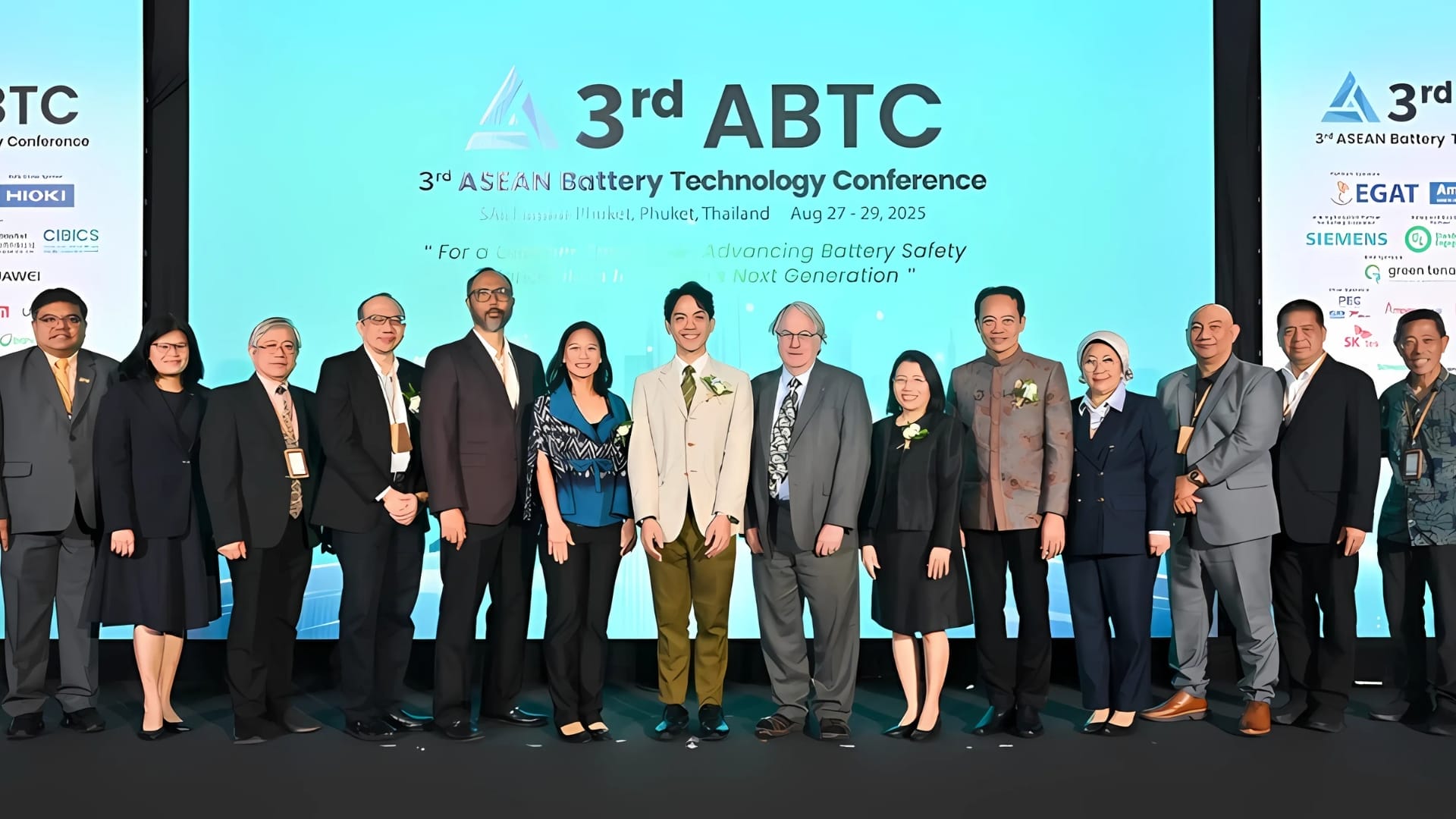ASEAN battery conference highlights regional leadership and collaboration
The 3rd ASEAN Battery Technology Conference in Phuket showcased new partnerships, safety standards, and innovation for clean energy.

The 3rd ASEAN Battery Technology Conference (ABTC) brought together over 340 participants from more than 20 countries to strengthen Southeast Asia’s role in the global battery industry. Held from 27 to 29 August in Phuket, Thailand, the event was hosted by the Thailand Energy Storage Technology Association (TESTA) in partnership with five regional organisations. A key highlight was the launch of the ASEAN Battery Safety Network (ABSN), which aims to set safety benchmarks and harmonise practices across member states.
Table Of Content
The conference was officially opened by Phuket Deputy Governor Samawit Supanpai, with an address by Pongpol Yodmuangcharoen, Secretary to the Thai Minister of Industry. He emphasised Asia’s growing role in clean energy, citing the opening of Thailand’s first battery cell plant, new circular waste laws, and stronger regional collaboration. “Thailand is proud to collaborate with partners across ASEAN to champion three principles of future-ready industries: transparency, innovation and circularity,” he said.
New partnerships and safety initiatives
ABTC 2025 marked the formal establishment of the ASEAN Battery Safety Network. Dr Sing Yang Chiam, Technical Director of the Singapore Battery Consortium, described it as “a major achievement for our region” that will enable faster and safer battery deployment through shared standards and best practices.
Several memorandums of understanding (MoUs) were signed during the event. These included partnerships for grid-scale battery energy storage system deployment, the development of swappable battery packs for small electric vehicles, and a collaboration between Indonesia’s National Battery Research Institute and Malaysia’s NanoMalaysia Berhad. Other agreements covered joint work on solid-state battery technology and Euro-Asian cooperation on energy storage infrastructure.
In addition, a strategic partnership was announced between ABSN and UL Standards & Engagement (ULSE), a non-profit organisation that will support the network’s efforts to ensure safe battery use across the region. Montavista also revealed plans to collaborate with Singapore’s A*STAR Battery Test Facility and ULSE to advance testing standards for lithium-metal batteries.
Industry insights and thought leadership
Nobel Prize-winning chemist Professor M. Stanley Whittingham delivered a plenary lecture on the future of lithium batteries and the challenges of localised manufacturing. Panel discussions explored topics such as artificial intelligence in battery production, sodium-ion innovation, and strategies to unlock ASEAN’s battery potential.
A new whitepaper titled “Navigating the Battery-Related Landscape in Southeast Asia and Beyond” was also launched. Jointly authored by six ASEAN organisations and two contributing partners, the study provides an in-depth analysis of the region’s evolving battery, electric vehicle, and energy storage markets, including policy developments, recycling practices, and technological innovation.
Looking ahead
Dr Pimpa Limthongkul, president of TESTA, said the conference was a vital platform for shaping the region’s energy future. “The conversations we have here will influence how our region manufactures and deploys battery technologies in ways that are both commercially viable and environmentally sustainable,” she said.
NanoMalaysia CEO Dr Rezal Khairi Bin Ahmad noted the importance of creating a circular economy and aligning policies across ASEAN to build a strong and competitive market. He confirmed that Malaysia will host the next edition of the conference.
The event received support from international and regional partners, including Siemens, Huawei, and UL Standards & Engagement, alongside research institutions and government agencies.
















